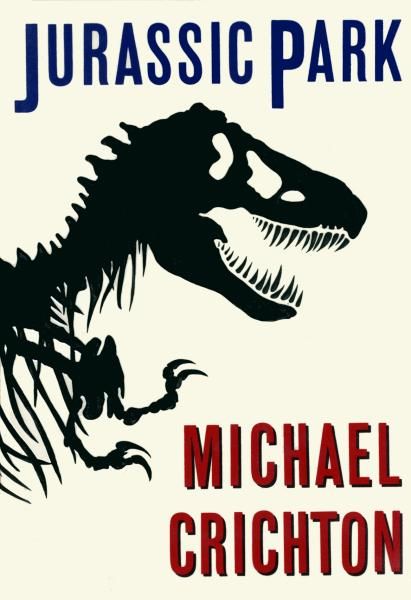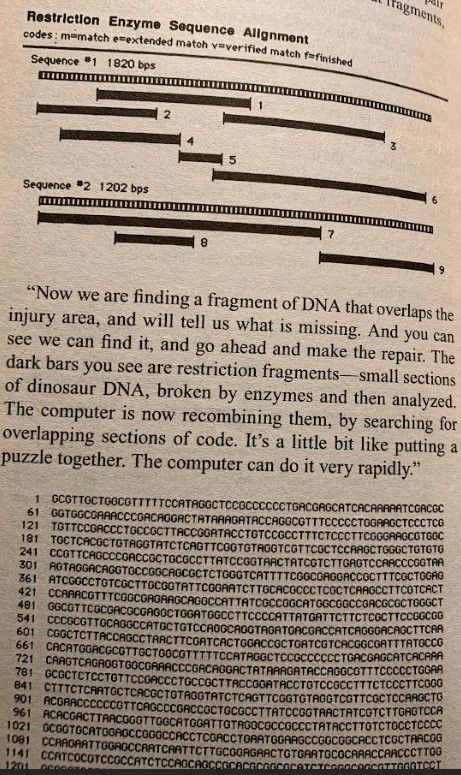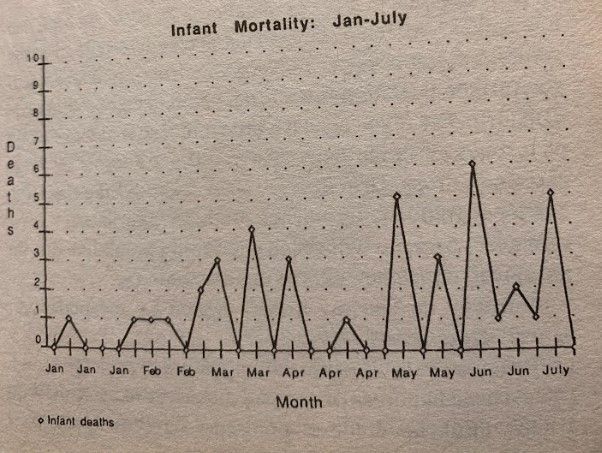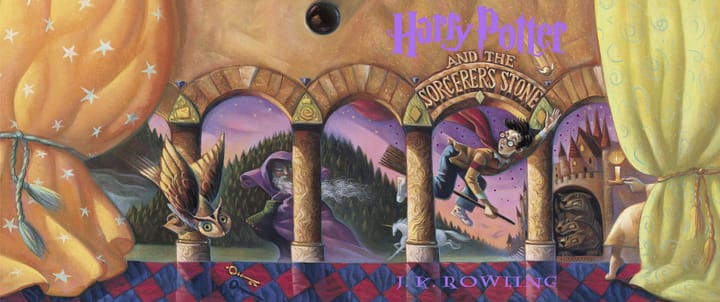With Both Hands Classics: Jurassic Park

I recently re-read Jurassic Park for the first time in decades. When I was a teenager, I was obsessed with Michael Crichton's books, and the movies based on them. I read every book of his that I could find. After a while, I drifted away, looking for variety in my reading. Without giving it much thought, I thought that perhaps it was just a juvenile phase.
Now that I have a better idea of what I like and why, I am very, very pleased with how good this book is; it is even better than my memories of it. Let's launch into a With Both Hands Classics post on this to explore why Jurassic Park holds up so well.
I don't often hear people speaking of Jurassic Park as a science fiction novel, but it clearly is one. Even my own library, where I picked up this copy, has two minds about it. One copy is filed in science fiction, and the other in general fiction. This is likely because science fiction is seen as a ghetto, and Michael Crichton was a conspicuous success, and therefore could not be part of a ghetto.
I am of course using my own definition of science fiction, which comes from John J. Reilly:
..."hard" science fiction, which leaves the reader usefully instructed in certain principles of physics or biology after reading a story that otherwise closely resembles a Western.
This dovetails nicely with JD Cowan's position that science fiction isn't real, the books we call that are just a subset of adventure fiction, the form that used to be called the romance, a series of marvelous adventures.

Jurassic Park is clearly an adventure story, and the science is really good. The emergency medical scene at the beginning is best of course, since Crichton was trained as physician. The basics of genetic engineering haven't changed much in the last three decades, so that science is still mostly up-to-date. What really stands out to me are Crichton's inclusion of some really top-notch diagrams in the book. Books with diagrams are uncommon, fiction books with diagrams doubly so.


The second graph, on infant mortality in Costa Rica has a great extra layer in it. Ian Malcolm, who is a spot on caricature of the kind of guy who was [is?] associated with the Santa Fe Institute, gives this highfalutin' chaos theory explanation for the shape of the graph that is hilarious bullshit, but the information the reader needs to connect the dots is only available far later in the book. I will leave the best explanation of the data as an exercise for the reader.
Crichton's criticisms of the malign intersection of capitalism and science are perhaps even more cutting than they were when the book was published. No one has yet had a disaster quite the like InGen incident, but it is not from an excess of foresight or probity. Mostly just a lack of competence and good luck on the part of the public. It certainly isn't hard to find malevolent fraudsters like John Hammond even now.

If we turn from Crichton's commentary on science worship to the story, the pacing of the book struck me as odd at first. In a number of cases, an event happens, timed just so, so that a key character narrowly escapes death while moving to a new location or some such. But then I realized that of course Crichton did it that way.
Ratcheting up the tension like this is a time-tested literary device. You can see similar things in Dracula, when Bram Stoker has his characters fail to discuss some critical detail that will then bring them all closer to doom. A more "realistic" novel would try to see what would happen if all these elements got thrown together, like an elaborate wind-up toy. Crichton manipulates things for maximum effect, which makes for a gripping and fast-paced book. Realism in books is overrated.
Crichton's characters are more interesting than the very similar ones in Spielberg's movie adaption. The movie was popular enough to partially displace even as popular a novel as this one in the broader culture, so it is worth looking at a few of Crichton's original characters. In particular, the Italian lawyer Gennaro and the British Kenyan Muldoon both come off better.

Spielberg's Gennaro was weedy and indecisive, but in the book Gennaro is exactly what a trusted associate attorney is like: bullish and aggressive, a workaholic who can be dispatched at short notice to deal with a major problem. Gennaro is even attacked by a wounded raptor and manages to escape it. Not the kind of guy you want showing up demanding to tour and audit your facility.

Muldoon is also more interesting: described as a big-game guide, but a man with the virtues and vices of a soldier of fortune. He is big, strong, and clever, but a very hard drinker. Again, Crichton leaves some interesting elements as an exercise to the reader: why did Muldoon leave Kenya? How did he acquire such facility with shoulder fired weapons? Especially after hitting a bottle of whiskey first thing in the morning? At some point, Muldoon probably hunted the most dangerous game. After all, his intro in the book only says he spent "most" of his life as a guide for big game hunters.
And there is Hammond, rather than the genial and doddering old man of the movie, Crichton's Hammond is a malevolent and grasping psychopath, utterly indifferent to any consequence of his actions that doesn't mean he gets fame, or money, or both. Hammond is an utterly chilling portrayal of the kind of personality that can be very, very successful in the world, while leaving a trail of devastation behind them.
Jurassic Park is thus not merely an adventure story, but of a piece with mid-twentieth century American science fiction's passion for social criticism combined with scientific education. The layers and artistry aren't as deep as Dune, but then again hardly anything can be. Jurassic Park's sales and popularity were well-deserved, and I'm likely to return to more of Crichton's books after this.
With Both Hands Classics | My other book reviews | Reading Log
Mini-reviews


Comments ()